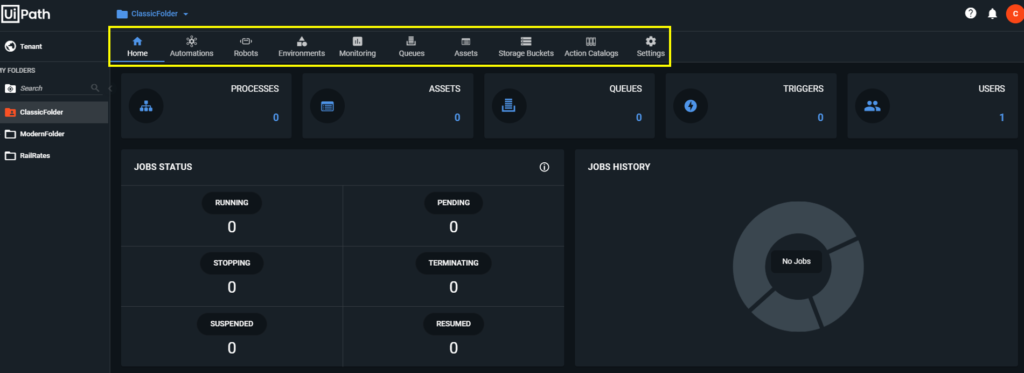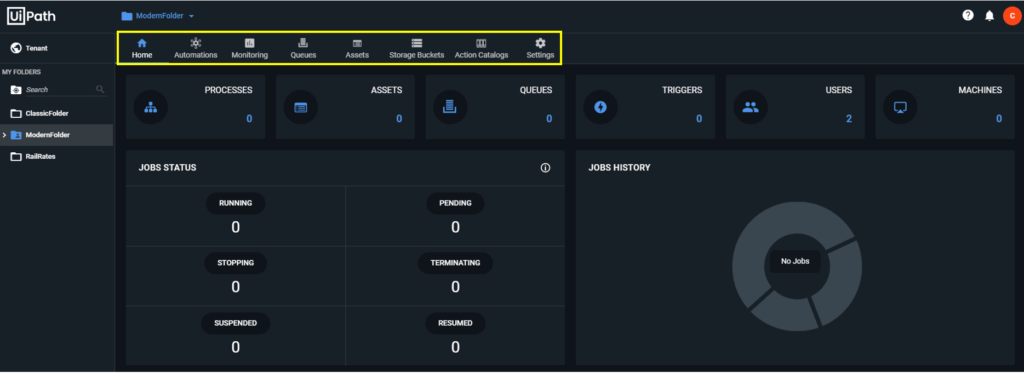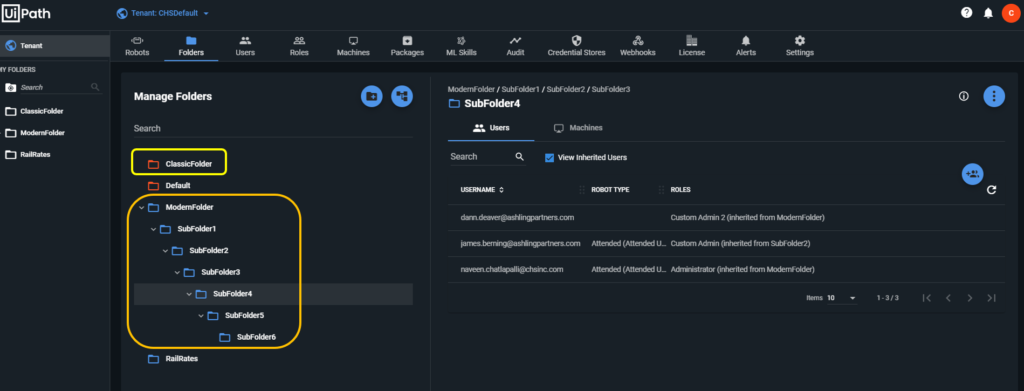UiPath Folders
Folders are a storage unit that helps keep your projects separate. They enable you to maintain fine-grained control over automations and their underlying entities across the entire organization.
Folders have their own Orchestrator resources that reside within each specific folder. There are two types of folders available in Orchestrator: Classic and Modern. Classic folders are enabled by default while the Modern folders functionality must be enabled by the Host or Tenant administrator.
Classic Folders
Robots, which are managed manually can only be part of one classic folder. As such, they can only have access to processes found in one folder at a time. If you want to give access to a process found in a different folder, you are required to delete the Robot from the first folder, and provision it in the new one.
Classic folders as the name suggests, function in the traditional manner where they contain provisioned Robots and Environments, with all users having the roles assigned to them at the tenant level. If upgrading an existing Orchestrator for instance, the resulting folder structure created is dependent on whether the Organization Units feature was in use.
- If Organization Units were in use, a classic folder of the same name is created for each unit and all entities are transferred to the new folder(s).
- If no Organization Units were in use, only the Default classic folder is created with all entities under that tenant placed in it.

Entities in Classic Folders:
- Monitoring
- Robots
- Environments
- Processes
- Jobs
- Triggers
- Queues
- Assets
- Tasks
The contents of these entities are specific to the active folder, only those available in this folder are visible in Orchestrator. Switching the active folder will also update the entities and their contents, visible in Orchestrator.
Modern Folder

Modern folders are unique folders to which “Users” are assigned with automatic provisioning of Robots. The user and the automatically provisioned robot are linked, with the robot available for process execution in any folder where the user has access. Modern Folders are available for the Orchestrator v19.10.1 or higher.
Combined with Active Directory integration this enables easy management of large-scale attended automation deployments. In addition to the role inheritance model of classic folders, modern folders can be created using a Custom Roles model, enabling you to set roles per user, per folder. Modern Folders are the UiPath recommended standard going forward because of the flexibility and ease of use.

Entities in Modern Folders:
- Monitoring
- Processes
- Jobs
- Queues
- Assets
These entities can be included in multiple folders of a hierarchical structure or be specific to each individual folder or subfolder. Only those available in the active folder are visible in Orchestrator. Switching the active folder will also update the entities and their contents, visible in Orchestrator.

| Classic Folder | Modern Folder |
|---|---|
| Contains provisioned robots and environments. | Automatic provision of robots as the user and no environment concept. |
| Users are assigned at the tenant level. | Users are assigned at the folder level. |
| In the classic model, the robot can be part of only one folder. | Combined with Active Directory integration. |
| A classic folder, named Default, is created for each new tenant. | Enable you to set roles per user, per folder. |
| You can create as many additional classic folders as needed. | You can have up to six subfolders under each first level. |
| Classic folders follow a separate, flat structure. | Each subfolder inherits the role assignment model of their parent. |


